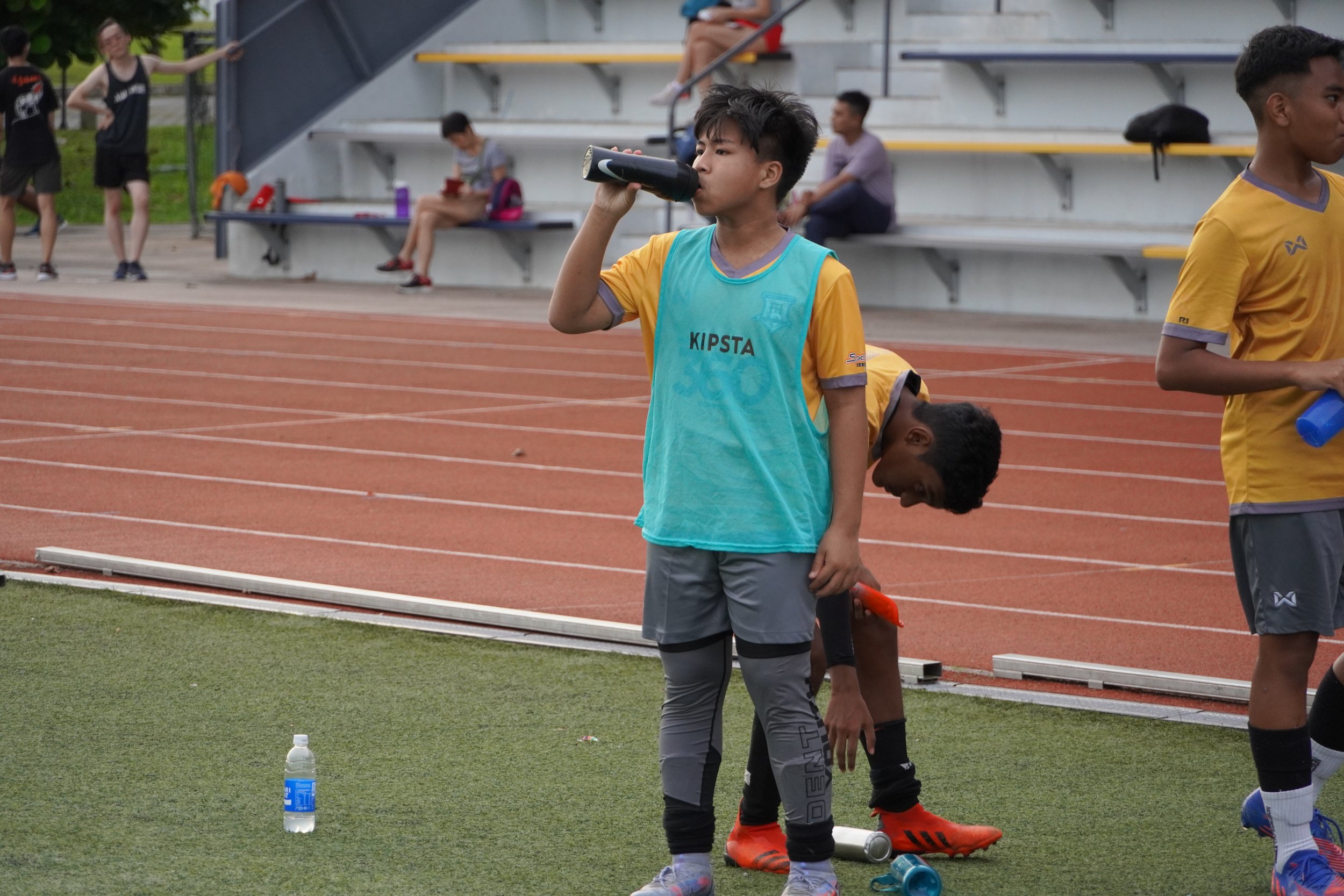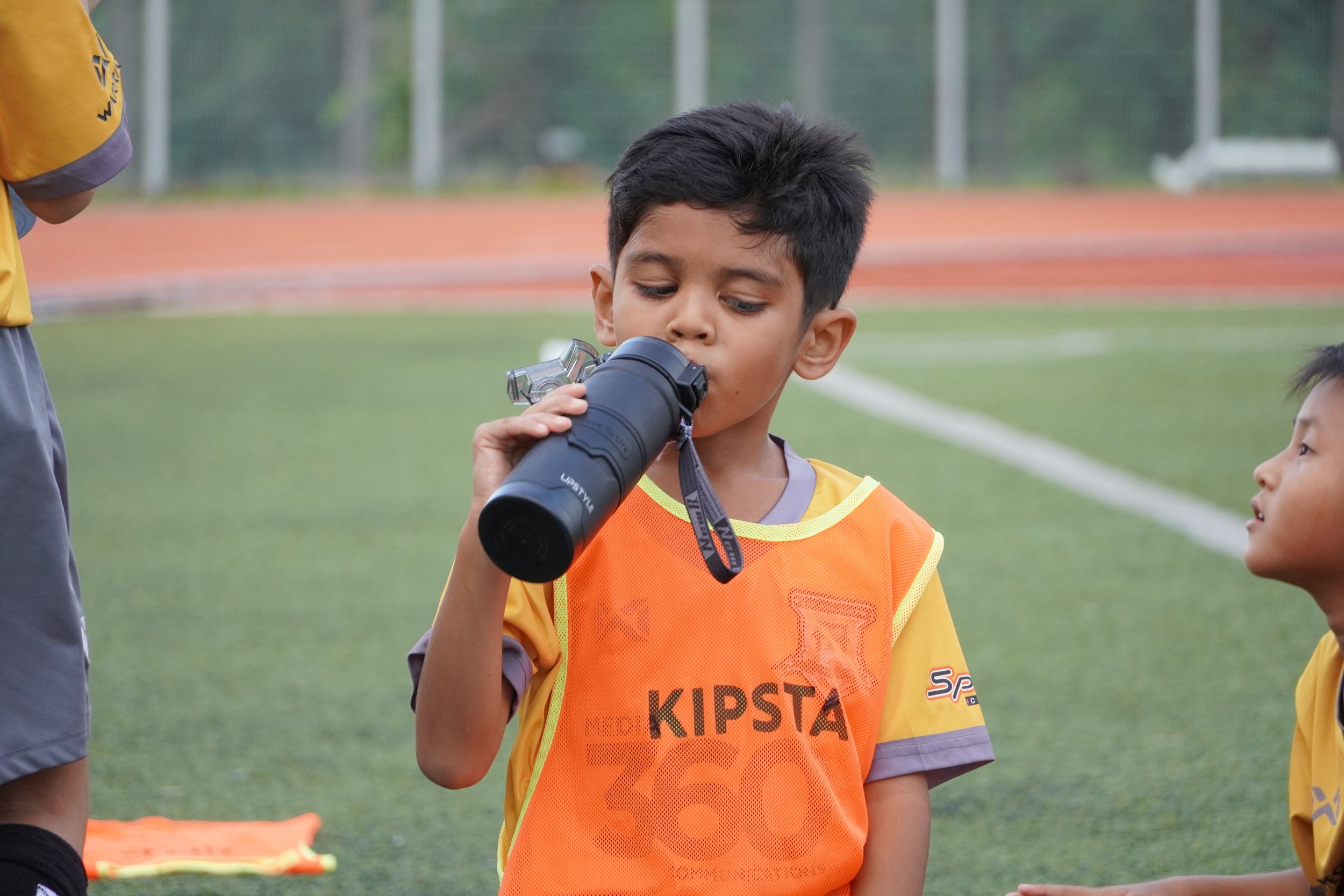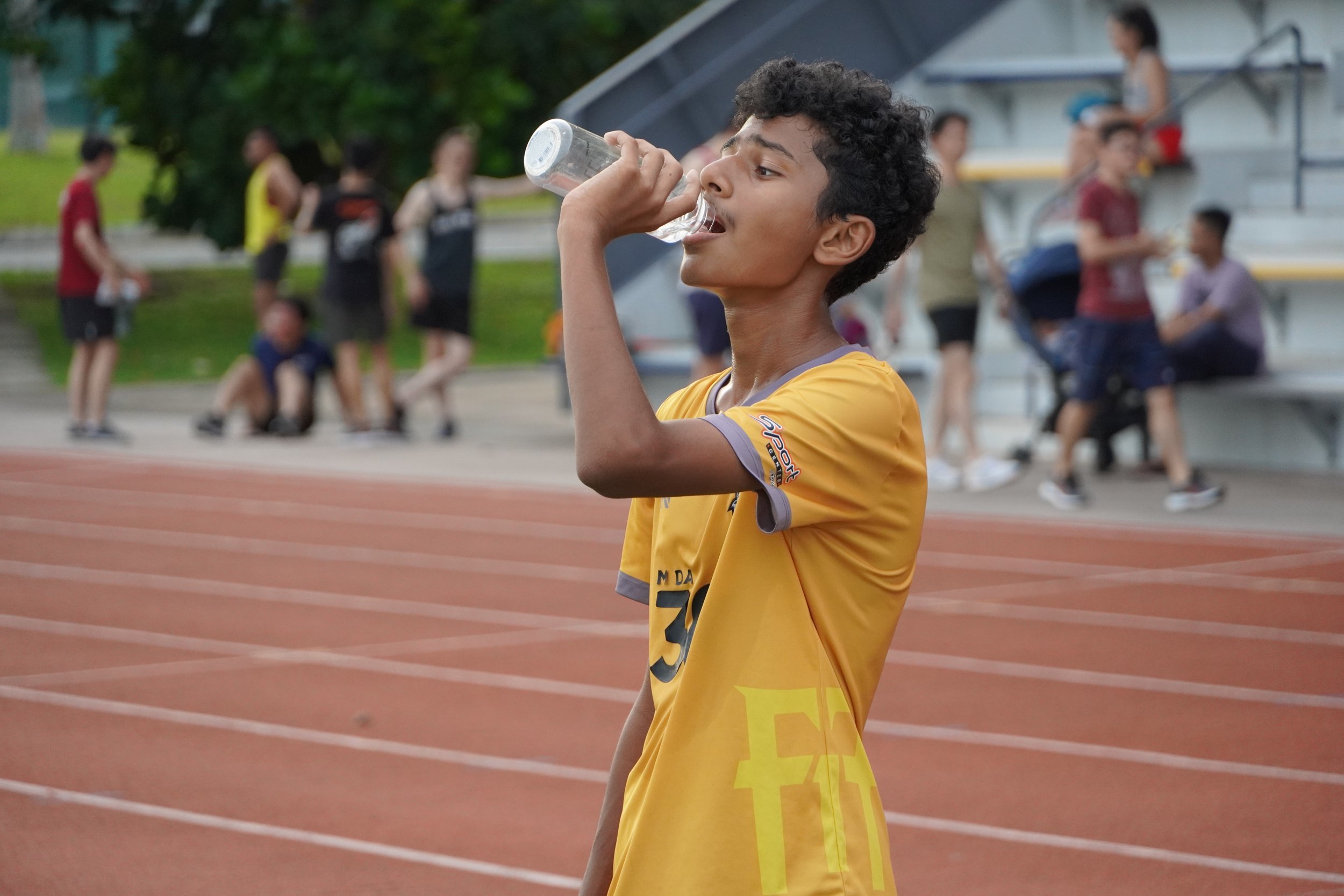The Importance of Nutrition for Atheletic Performance
Diet significantly influences athletic performance. An adequate diet in terms of quality and quantity before, during, after training and games will maximize player performance and enable players to respond actively to physical training.
Good nutrition is essential to help the player recover from training sessions and perform well during training, competition and reduce the likelihood of injury.
What should a player be eating?
A balanced diet is essential to food health, and will provide all the nutrients a player needs. Each person’s metabolism is different and some players require more or less calories than others. If a player eats excessive amounts of any food, the body will store the excess as Adipose Tissue (Fat).
What does this mean for the player?
It is important to reload depleted carbohydrates stored quickly by eating carbohydrates as soon as possible post exercise (first 30 minutes to 1 hour is best).
It is also important to ensure adequate carbohydrate intake 24 hours prior to a game as it takes their time for the ingested carbohydrate to be converted to muscle glycogen (an energy source for muscular activity).
Type of food for a player’s diet:
Breakfast:
Toast, preserves (e.g jam, marmalade, honey), wholemeal bread, yoghurt, cereals, fruit, juice, milk, porridge, eggs, spinach
Lunch:
Soup, sandwiches, salad, banana, fruit, jacket potatoes with filling i.e. baked beans, cheese, tuna
Dinner:
Pasta, fish, lean read meat, chicken, vegetables, potatoes, noodles (boiled), rice, eggs, fruit and cheese
Snacks:
Apples, bananas, biscuits, raisins, fruit cake or similar (1 slice)
“The right food in the right amounts at the right time for the right results”
Fluid Intake
All the body’s cells contain water and is needed for the body’s cooling system and the transport of nutrients around the body. Adequate fluid intake is essential to prevent a decline in physical performance.
Sufficient liquids must be taken to counter the effects of fluid loss during activity. A cupful every 15 minutes (approximately 50mls is recommended).
During training and playing, high rates of sweat loss occur to prevent a rise in body temperature. This leads to progressive dehydration. Dehydration producing a 1% loss in body weight may significantly reduce performance, strength, stamina, speed and concentration.
It is even more important for younger players to drink plenty of fluids as their body temperature regulation is not as developed as adult players. Intakes of strong coffee & tea should be resisted as they give a dehydrating effect.
Sports Drinks
The F17 Football Academy stresses that the best form of hydration is water. If you think your son/daughter needs an ‘ISOTONIC drink’, we advise that water with added concentration squash and a tiny pinch of salt represents an ISOTONIC drink.
These drinks can be used at half time to offer carbohydrate replacement to the working muscles and hydration. For after the game low fat chocolate milk is a good replacement for protein and carbohydrate.
Always bring water/fluid replacement drink to training and matches.




